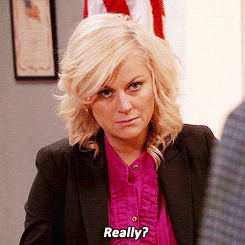Abortion rights, women of color, and LGBTQIA+ people are under attack. Pledge to join us in fighting for gender justice.
The Supreme Court and Justice for Jane Doe

You’ve probably heard us talk about Jane Doe – a seventeen-year-old young woman who came to the United States without her parents, and was blocked by the Trump Administration’s Office for Refugee Resettlement (ORR) from getting the abortion she needed. Well today the Supreme Court issued its final decision in her case. I’ll give you a breakdown of what the Court said and what it means, but first a refresher!
- The case began when ORR essentially held Jane Doe hostage for three weeks and refused to let her get an abortion.

- But then, thankfully, on October 13, 2017 the ACLU took the Trump Administration to court and demanded justice for Jane. The ACLU asked the court to temporarily block the government and prevent ORR from interfering or obstructing Jane Doe’s access to abortion.
- On October 18, 2017 the District Court was like, obviously we are going to block the government from placing such an undue burden on Jane Doe and issued a temporary restraining order so that Jane Doe could get the care she needed.

- But the Trump Administration was set on blocking Jane Doe’s abortion, and immediately asked the U.S. Court of Appeals for the D.C. Circuit to stop the District Court’s order and further delay Jane Doe’s abortion.

- And then something bad happened. On October 19, 2017, a three judge panel of the D.C. Circuit, which included Judge Kavanaugh – who is on Trump’s short list for the Supreme Court (yikes), put Jane Doe’s abortion on hold under the guise of finding her a sponsor and continued to impose further delays on her constitutional right. Judge Millet wrote a bomb dissent and told the court what’s what. She said that forcing Jane Doe to “continue an unwanted pregnancy just in the hopes of finding a sponsor that has not been found in the past six weeks sacrifices [Jane’s] constitutional liberty, autonomy, and personal dignity.”
- The day was saved on October 24, 2017, when the full D.C. Circuit overruled the three judge panel order to allow Jane Doe to get her abortion.
- And the next day, on October 25, 2017, Jane Doe was able to terminate her pregnancy.

But you’re like, “wait, what?” where does the Supreme Court come into all of this?
Remember how the Trump Administration’s ORR has made it its personal mission to do everything in its power to force young, pregnant immigrant women to continue their pregnancies against their will? Well, on November 3, 2017, the government decided to ask the Supreme Court to review the decision. And in an extraordinary move, the government went after Jane Doe’s attorneys and asked the Supreme Court to sanction these dedicated lawyers who, unlike the government, were doing their job and acting in Jane Doe’s best interest!

The good news is the Supreme Court issued an unsigned order today without recorded dissent and said the issue was moot because Jane Doe already had her abortion. Meaning the Supreme Court was like, we don’t have an opinion to share with you on this. Jane Doe already had her abortion so there’s nothing for us to decide. The Court also said that it wasn’t going to sanction the ACLU attorneys for doing their job. Nice try ORR, but we aren’t afraid of you.
So what does all this mean?
- Jane got justice. The Supreme Court didn’t make a decision one way or the other.
- But because the Supreme Court found this particular case was moot another case could (and likely will) come before the Supreme Court again. In fact, since Jane Doe, ORR has attempted to block at least three other unaccompanied immigrant women from obtaining an abortion. However, the ACLU has sued on their behalf and on behalf of other young women. On March 30, 2018, a lower court granted a preliminary injunction prohibiting the government from interfering with young, pregnant people’s access to abortion. But the government, as relentless as ever, appealed that decision in the hopes of getting the federal appellate court to allow ORR to continue enforcing its unconstitutional policy while the case proceeds.
Importantly, this decision does not impact the other lawsuits filed by the ACLU seeking to bar ORR from blocking access to abortion once and for all.




